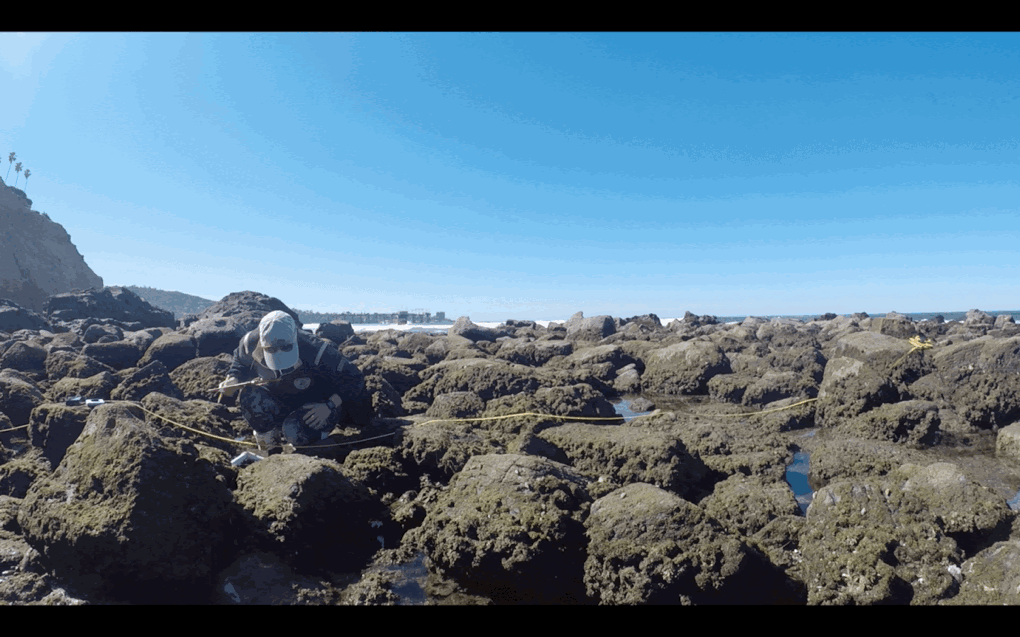top of page

PhD Research
I'm interested in how species with complex life cycles build up their environmental tolerances, ultimately allowing them to cope with climate change. I study how tolerances develop across life stages and between generations.
Impacts of climate change across generations of marine invertebrate species with complex life cycles

Preparing the next generation for climate change: Are parental effects on larval thermal tolerance adaptive or maladaptive?
The ability of populations to cope with thermal stress may be influenced by conditions experienced by parents, via both genetic changes and transgenerational phenotypic plasticity through epigenetics or maternal provisioning. Adaptive parental effects occur if more stressful parental environments yield more tolerant offspring while the opposite pattern leads to maladaptive effects. This study evaluated the role of parental effects in determining larval thermal tolerances for the intertidal mussel, Mytilus californianus. We tested whether thermal environments across a natural gradient (shoreline elevation) impacted mussel temperature tolerances. Lethal thermal limits were compared for field-collected adults and their larvae. We observed parental effects across one generation, where adult mussels exposed to warmer habitats yielded less tolerant offspring. Interestingly, though parental environments influenced offspring tolerances, we found no clear effects of habitat conditions on adult phenotypes (tolerances). We found indicators of trade-offs in energy investment, with higher reproductive condition and larger egg sizes in low-stress environments. These results suggest parental effects are maladaptive leading to negative effects of thermal stress on the next generation.
%20(1)%20(2).png)
Right on time: the effect of critical windows on transgenerational plasticity
Due to the rapid rate of climate change, species will likely acclimate via phenotypic plasticity as a first defense. Transgenerational plasticity, where the phenotype of an individual depends on the environment of its parents, could play an important role in buffering populations against climate change. The time of exposure relative to a parent’s life cycle might be an important factor for determining the outcome of this plasticity. Using a meta-analysis approach, we investigated whether there are critical windows of time of exposure to environmental stressors that induce transgenerational plasticity in marine invertebrates and factors that might affect transgenerational outcomes. We summarized 107 experiments from 23 peer-reviewed papers, spanning 20 species, that assessed fully factorial responses of offspring exposed to ambient or stressful conditions from parents exposed to ambient or stressful conditions. We calculated effect sizes (Hedges’ g) for these four contexts of ancestral-progeny experimental environments and collected life history information for each study species from the literature. We conducted a meta-regression to assess the role of the following calculated critical windows on transgenerational plasticity: proportion of gametogenesis, proportion of life span, and proportion of life stage duration. We found that offspring performed better in less stressful environments but when exposed to stress, offspring tended to perform better when their parents were exposed to climate change conditions. Transgenerational plasticity varied across stressors, traits, taxonomy, and life histories. The proportion of gametogenesis – but not the proportion of life span or life stage duration – appeared to be a critical window that plays a role in transgenerational plasticity. However, the effect of transgenerational plasticity was opposite that expected, with the performance of offspring under stress declining when parents were exposed to the stressor for a larger portion of gametogenesis. Understanding which time periods in life cycles act as critical time windows for transgenerational effects will aid in evaluating whether adults are likely to be primed to help their offspring acclimate to future climate.
On the edge: demography across latitudinal and elevational gradients for range-expanding whelks
Marine species worldwide are responding to ocean warming by shifting their ranges to new latitudes and elevations for intertidal species. Demographic traits can vary across populations spanning latitudinal and elevational ranges, with impacts on population growth. Understanding how demography varies across gradients from the range center to edge could help us predict future range shifts, species assemblages, and extinction risks. We investigated demographic traits for two range-expanding whelk species Acanthinucella spirata and Mexacanthina lugubris. We measured reproductive output across environmental (latitudinal and shore elevation) gradients along the coast of California, USA. We also conducted intensive measurements of offspring condition (survival and thermal tolerance) across shore elevation for M. lugubris at one site. We found no difference in reproductive output, body size, or larval survival across shore heights for M. lugubris, suggesting egg-laying behavior may buffer developing stages from the relatively high level of thermal variation experienced due to daily tidal emersion. However, across latitudes, reproductive output increased toward the leading range edge for A. spirata and body size increased for both species. Increased vital rates at the leading range edge could increase whelk population growth and expansion allowing the species to persist under climate change even if contractions occur at the trailing edges.
.jpg)
I presented my preliminary work at the SACNAS National Diversity in STEM conference in San Juan, Puerto Rico. Check out my award-winning poster below!

bottom of page